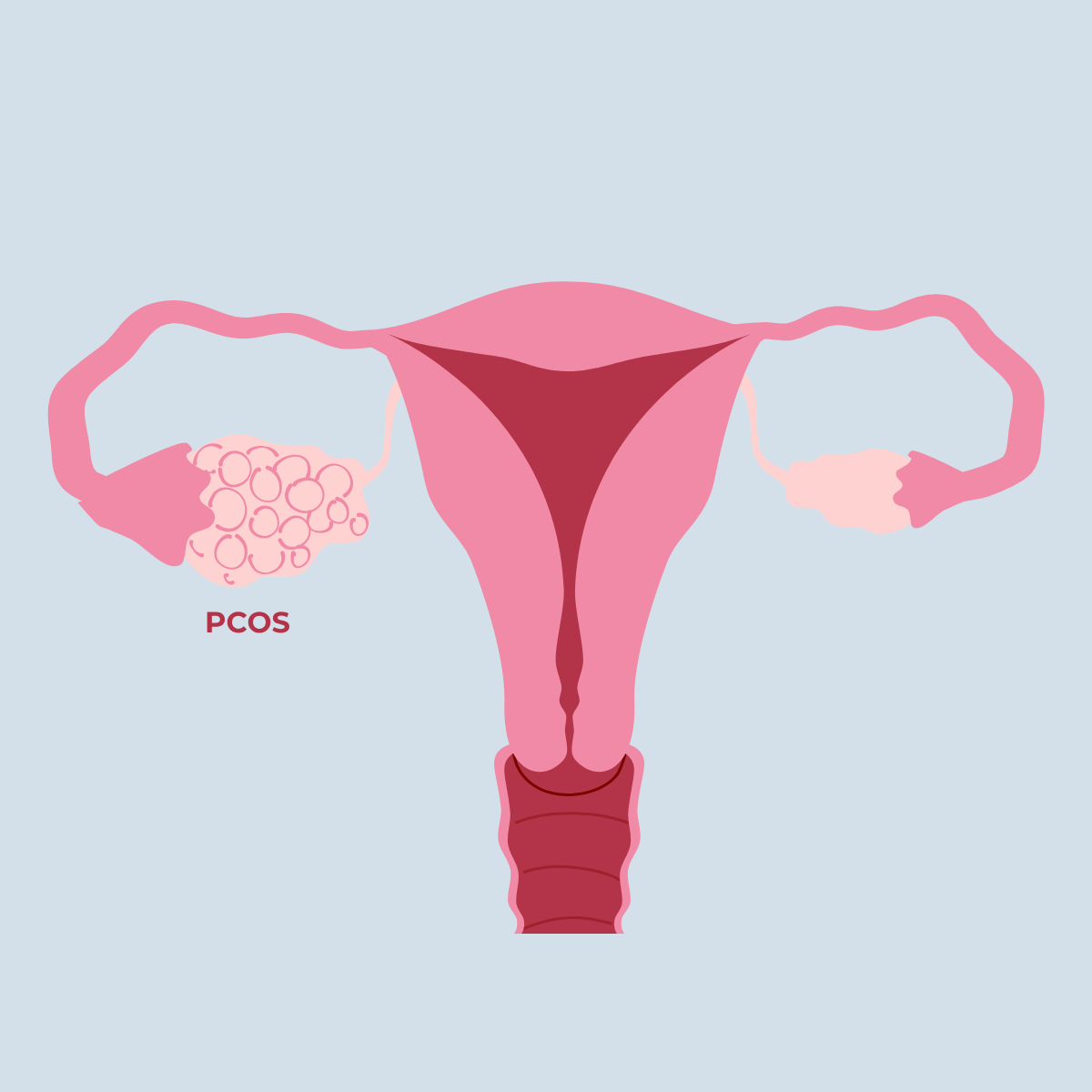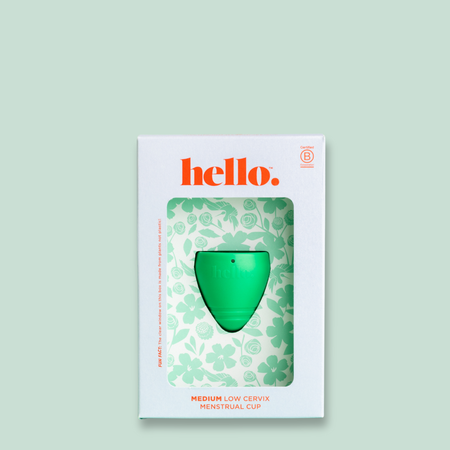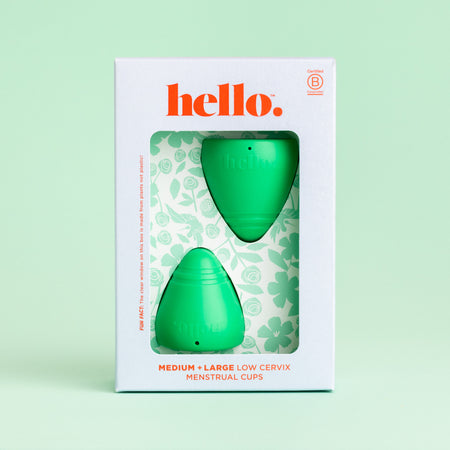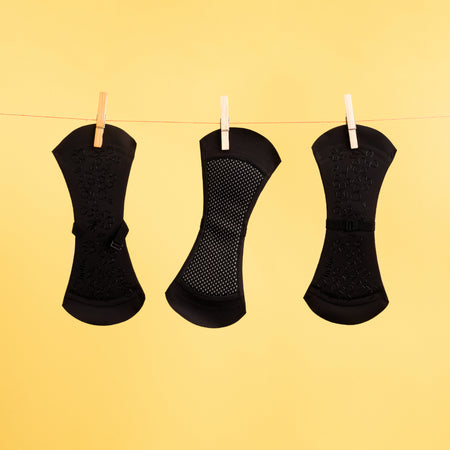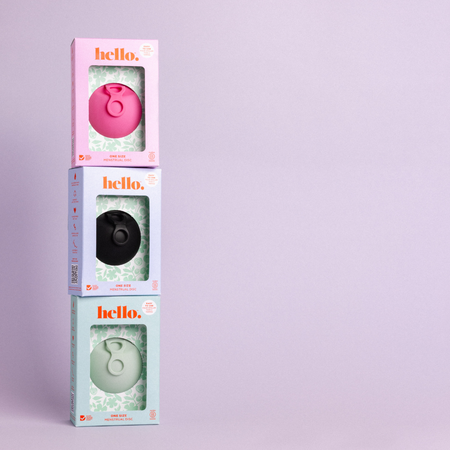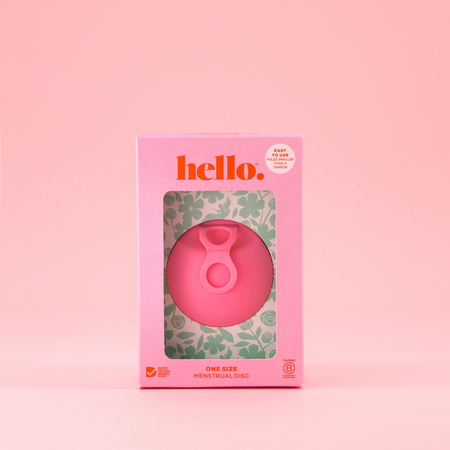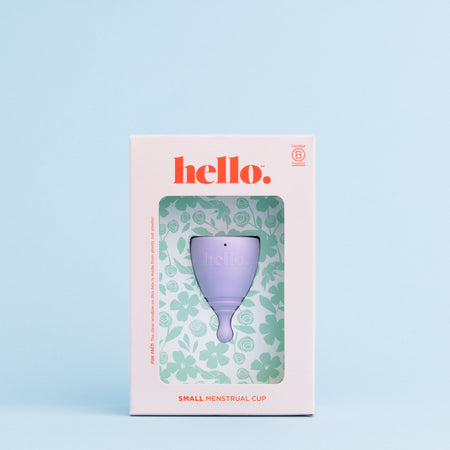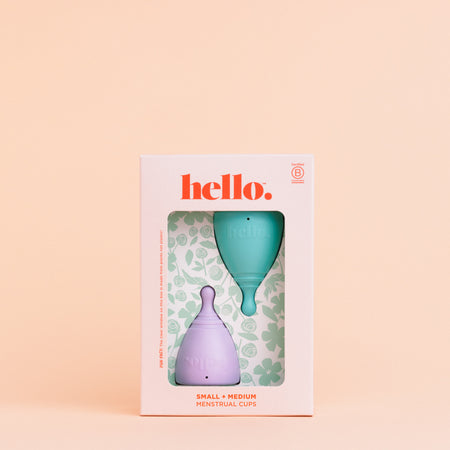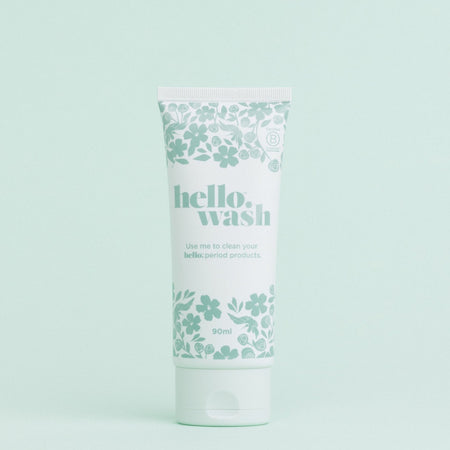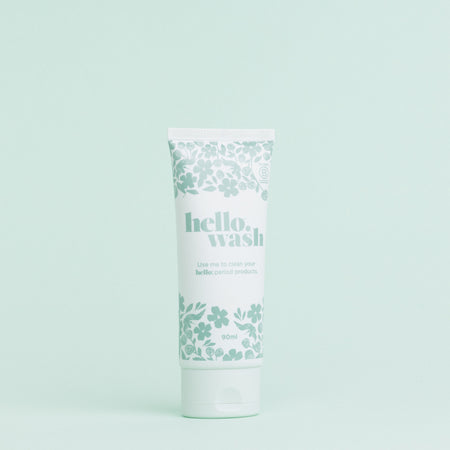Let's delve into a subject that's super normal yet hardly ever talked about: period odour. Okay, it's not exactly dinner party conversation, but it's still one worth having with your bestie (or us!). We've all been there, wondering, "I can smell my period through my pants, what happened?" and instantly going into panic mode. But here's the thing—it's totally normal, and we're here to talk about why it happens and what you can do to manage it.
What Are the Different Types of Mentrual Period Smell?
Menstrual period smell can range from metallic to sweet and each can give an indication of a different market.
- Metallic - A bitter, copper like scent. This is normally due to the presence of iron in the blood and is not usually a cause for concern.
- Rotten - This isn’t a great one and could be a sign of a foreign body, such as your tampon, has been left in the vagina for too long (or possibly even forgotten about!).
- Sweet - A sweet smell in period blood is likely due to the acidic environment and the presence of bacteria in the vagina and not something to worry about.
- Fishy Sometimes, an imbalance in your vagina's microflora can cause a fishy smell.
Why Does Period Blood Smell?
First off, that unique bouquet wafting up is due to several perfectly natural reasons.
Our bodies are complex ecosystems, and when it comes to your period, a mix of factors can influence its scent and then the question, “Why does my period blood smell so bad?”. Let's shed light on them:
1. Developing Bacterial Vaginosis
A fishy odor might indicate bacterial vaginosis (BV), an infection due to an imbalance of bacteria in the vagina. BV is a common vaginal condition affecting women aged 15–44.
If you have it, you are likely to experience these symptoms down there:
- Gray or milky white vaginal discharge with a foamy or watery texture.
- Itching.
This smell is often related to an infection, such as trichomoniasis, and is worth talking to your health professional about.
2. Wearing Tampons for Prolonged Periods
A foul, rotten smell could suggest that it’s time to change to new tampons.
Leaving a tampon in for too long can create an environment for bacteria to thrive, so it is recommended to change your tampon regularly.
3. Vaginal Bacteria
Our vagina naturally hosts various bacteria.
Some explain that an odor can develop as menstrual blood stays inside the vagina and mixes with its bacteria, which leads to different smells.
The smell can vary as the bacterial balance in your vagina changes.
4. Sweating Excessively
Sweating more than usual is not a foreign sign to period.
This extra sweat in the genital area can make down there smell similar to a dirty gym bag.
The sweat glands in this area increase the natural scents of our skin and, of course, the vaginal microbiome. When sweat mixes with period blood, it creates a strong odor.
Can the Others Smell My Period?
Guess what? While you might be convinced that everyone from your coworker to the barista can sniff out your menstrual cycle, the truth is they most likely can't. Most of the time, you're the only one who notices because, well, you're pretty close to the source!
Should I Use Scented Menstrual Products?
While it might be tempting to reach for scented period products to mask the odour, they can actually do more harm than good, potentially leading to irritation or allergies. Stick with unscented, and keep things as natural as possible down there.
How to Stop Bad Period Smell?
Now, for the golden question: How to freshen things up? Here are some simple yet effective tricks:
Change Frequently
It's essential to change your sanitary products regularly to keep things fresh and bacteria at bay. Whether it's pads, tampons, menstrual cups or period underwear, staying on top of this simple task can make a world of difference.
Wash with Care
Washing your reusable period care products with a pH-balanced soap like Hello Wash can help maintain your vagina's natural harmony.
Choose Breathable Undies
Opt for cotton or other moisture-wicking fabrics to keep the area dry and odour-free.
Store Menstrual Underwear Carefully
After washing, make sure your mentrual underwear thoroughly dry before storing to prevent any musty smells from developing.
Air or Line Dry
Whenever possible, air or line dry your underwear and menstrual products to keep them smelling fresh.
Change to Other Period Products
If traditional pads and tampons aren't cutting it, consider switching to a menstrual cup like the Hello Cup or a menstrual disc like the Hello Disc. These options are less likely to cause noticeable odors.
The Bottom Line
And hey, if you're still thinking, "I can smell my period through my pants,” and freak out, just remember, your body is doing its thing, and there's nothing to be ashamed of. By understanding and taking a few proactive steps, you can handle period odour like a pro.
If you’re looking to explore more empowering, eco-friendly period products, swing by Hello Period to check out award-winning period products, as well as a treasure trove of educational resources.
FAQs
Is It Normal for Period Blood to Smell?
Absolutely, it is normal for period to smell! Variation in odour is completely normal due to factors like bacterial growth and sweat.
How to Get Rid of Period Smell after Period?
Stick with regular hygiene practices, consider switching to breathable and moisture wicking fabrics, and give menstrual cups or discs a try for a fresher experience.
No need to whisper or feel weird about it—talking about periods openly and positively is how we break stigmas and support each other.
Why does My Period Smell So Bad?
If your period has a strong smell, sometimes described as "smelling like death," it’s usually nothing to worry about. The strong smell from period is likely because of the blood, tissues, and bacteria that come out during your period. It’s normal for the vagina to have bacteria, and the smell can change during your menstrual cycle.
Is sweet smelling period blood bad?
Sweet-smelling period blood isn’t usually a cause for concern and can be influenced by a mix of hormones, diet, and natural bacteria. However, if the scent is unusual for you or accompanied by other symptoms like itching, pain, or unusual discharge, it’s best to consult a healthcare professional to rule out any infections or other health concerns.








